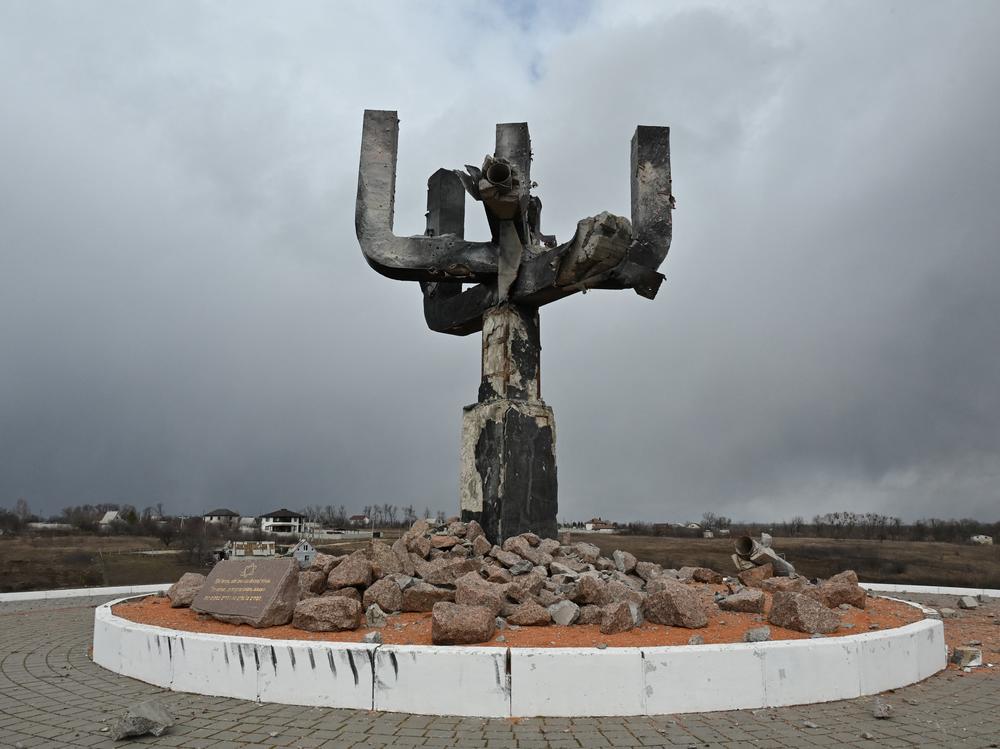Section Branding
Header Content
UNESCO says 53 cultural sites in Ukraine have been damaged since the Russian invasion
Primary Content
Since Russia's invasion of Ukraine, UNESCO says it's verified damage to at least 53 cultural sites in the country.
The organization says it assesses damage reported in the media or by Ukrainian officials and has a system to monitor main Ukrainian sites and monuments via satellite imagery.
"Our experts continue to verify each report and it is feared that other sites will be added to this list," a UNESCO spokesperson told NPR.
As of March 30, UNESCO said, the confirmed damaged sites, located in several regions across Ukraine, include 29 religious sites, 16 historic buildings, four museums and four monuments.
When the war began, UNESCO implemented some emergency measures in order to best protect these cultural sites. It held regular online meetings with World Heritage site managers, museum directors, national monument officials and local heritage protection associations in Ukraine to provide expertise and practical advice. UNESCO says it has experts available 24/7 to respond to emergencies.
"We assist them in identifying safe havens in which to store items which can be moved; and in assessing and strengthening fire fighting procedures," the spokesperson said.
The agency says it's also communicated with Russian Minister of Foreign Affairs Sergey Lavrov to reiterate that heritage sites are obligated to be protected and sent him location data of the heritage sites in Ukraine.
Both Russian and Ukraine have signed on to an act by the Hague Convention in 1954 that protects cultural property during armed conflict. It prohibits and condemns all attacks and damage to cultural heritage.
If cultural sites are marked with a blue shield — the convention's emblem — it means they are under the protection of the convention. If attacks are committed against these sites, UNESCO says, the perpetrators will be held responsible for acts constituting war crimes.
Copyright 2022 NPR. To see more, visit https://www.npr.org.

